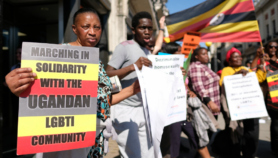Send to a friend
The details you provide on this page will not be used to send unsolicited email, and will not be sold to a 3rd party. See privacy policy.
Eight of the world’s leading technology firms have urged governments to stop tracking their citizens’ online personal data following recent leaks that have revealed the global scale of US-led spying on the internet.
The Reform Government Surveillance alliance comprises Google, Apple, Facebook, Twitter, Microsoft, Yahoo, LinkedIn and AOL. Its creation follows recent media revelations that the US National Security Agency (NSA) has been collecting vast amounts of personal data sent via internet and telecom traffic.
The group’s manifesto released at the beginning of December states that “governments should limit surveillance to specific, known users for lawful purposes, and should not undertake bulk data collection of Internet communications”.
It also calls for intelligence agencies to collect information under “a clear legal framework in which executive powers are subject to strong checks and balances”.
But it is unclear whether this initiative will bring real change in the developing world.
“There should be a more global response to the whole NSA scandal. People should demand better privacy, transparency and governance of their data online.”
Siraj Shaikh
Cybersecurity expert
The degree to which the alliance’s demands are met in the Middle East, and the overall protection of online personal data, will depend on the individual agreements that are established between each of those companies and Arab governments, says Siraj Shaikh, a cybersecurity expert at Coventry University, United Kingdom.
“In the United States and the United Kingdom, people have relatively transparent governments, but, still, the [security] agencies are getting away with doing this. In the Middle East, the situation is worse, because the governments are remarkably less transparent and the security infrastructure is much more secretive and brutal,” says Shaikh.
Among Arab states, Egypt, Morocco, Oman, Sudan and Tunisia were judged to have the most developed cybersecurity in 2013, according to the Global Cybersecurity Index put together by UN agency the International Telecommunication Union.
Citizens in the Arab region have adopted new technologies later than those in Europe and the United States, so their calls for better data protection remain limited, says Shaikh.
“In the Middle East, the notion of privacy and the awareness of state surveillance are starting to grow now, because people are beginning to use mobile phones and internet accounts for personal activities,” he says. “In the next five to ten years, the local population would definitely want more transparency.”
Shaikh applauds the alliance’s creation, but says he hopes to see a broader reaction from these companies and citizens themselves.
“There should be a more global response to the whole NSA scandal, including in the Middle East. People should realise that governments have this power to abuse people’s trust, and should therefore demand better privacy, more transparency and better governance of their data online,” he adds.
Robert Njathika, economist and research assistant at the Center for Intellectual Property and Information Technology Law at Strathmore University in Kenya, says the US initiative could also have a substantial impact in Africa.
“It is a good start and a change in the trend, because companies are now coming out publicly to demand more transparency and to lobby the US government.”
Njathika would also like the firms to demand similar protection from African governments.
“People will feel more motivated to go to these big companies and ask them: ‘Why do you have a double standard in African countries?’” he says.
Google did not reply to requests to comment on this article.
An African Union convention that aims to establish a common cybersecurity framework for the continent may be approved later this month. The draft version includes commitments on national cybersecurity, electronic commerce and cybercrimes such as child pornography, racism and xenophobia.
In Brazil, the National Congress has discussed proposed legislation designed to prevent cyber-spying. Its main focuses are on privacy, personal data collection and sharing, electronic data storage and web surveillance.
> Link to Reform Government Alliance














